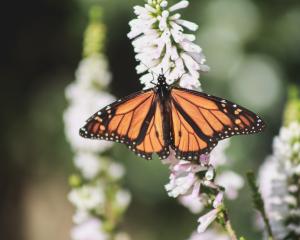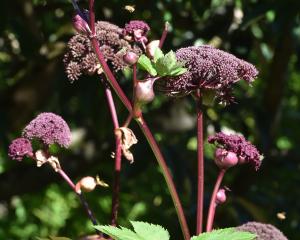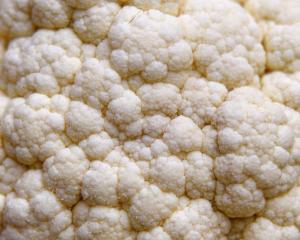A recent finding that glyphosate herbicides probably cause cancer has created a headache for home gardeners, among others. Gardening writer Wally Richards shares some tips about weed control.
A recent finding by the International Agency for Research on Cancer (IARC), an arm of the World Health Organisation (WHO), is that the herbicide found in Roundup, among other sprays, is ''probably carcinogenic to humans''.
It is causing some gardeners to think again about their approach to weed control, but gardening writer Wally Richards says the solution is in their own hands.
''Now I may be old but I do remember a time of gardening before the chemical was ever invented,'' Richards says.
''I also told one reader that I stopped using glyphosate over 20 years ago when I found that it started to make me feel nausea after spraying and I also found it was the cause of skin problems on my dogs, according to a specialist.''
Richards does concede that Roundup and other glyphosate herbicides can make the control of some weeds much simpler and in certain situations even suggests it as an effective control.
''The concern that I have is the unknown amount of the chemical in our food chain and what harm it is doing to ourselves and children.''
Monsanto, the world's largest seed company, which employs glyphosate as the active ingredient in Roundup, the world's biggest-selling weedkiller, has challenged the finding that it is cancer-causing.
It developed ''Roundup Ready'' crops in the mid-1990s.
They are genetically engineered crops that can be sprayed with the weedkiller to knock out pests, but survive themselves.
The US Government considers it safe.
It is hard to be certain who is right, because long-term human feeding trials involving glyphosate would be unethical, so the evidence has been mainly limited to studies of agricultural exposures, reported Ian Wylie, in The Guardian.
However, the IARC found the herbicide has been detected in food, water and in the air after spraying.
Several European countries, including Holland, Denmark and Sweden, have banned or restricted the use of glyphosate herbicides by local authorities, because of alleged links with a variety of health problems - not just cancer - ranging from birth defects and kidney failure to coeliac disease, colitis and autism.
Pressure is also coming on local government in the US to stop using glyphosate in urban areas to control weeds, The Guardian reports.
Chicago is one city to have banned it in public spaces.
Another study, in Argentina, suggests a correlation between glyphosate use and the decline in activity in honeybee colonies.
And in New York, an environmental group is suing the Environmental Protection Agency for ignoring the dangers of glyphosate which, it claims, has resulted in the demise of the monarch butterfly population.
A study commissioned by Friends of the Earth at an independent German laboratory in 2013 found glyphosate present in urine samples from people in all 18 countries surveyed.
Friends of the Earth has its own concerns about glyphosate, including that it may disrupt the human endocrine system, ''which can cause irreversible effects at particular life stages, such as during pregnancy''.
Richards' advice, if gardeners are comfortable using chemicals, is to switch to a different weedkiller and to keep them away from food-growing areas.
A more natural approach is ''good old-fashioned'' weeding by hand, ''used successfully for thousands of years with no known ill effects on soil or your health''.
''I actually liken it to a form of meditation where you focus on the weeds and leave the preferred plants and seedlings to grow,'' Richards says.
Weeds can be pulled out easily when the soil is wet.
Or an even better approach, Richards says, is to use a sharp knife to slice through the growing stem under the soil surface, leaving the root system to rot away and feed the soil.
The sliced tops, minus their roots, can be laid on bare soil to also rot and feed the soil.
The key to this approach, is to weed regularly when the weeds are still seedlings, he says.
Where weeds are growing through cracks in concrete or between cobbles, salt can be applied.
Another approach is to spray weeds on a sunny day when the soil is dry with vinegar or cheap cooking oil, which dehydrates the weeds.
Steam or boiling water can also be useful control tools.
There are gardening appliances that use steam in this way.










